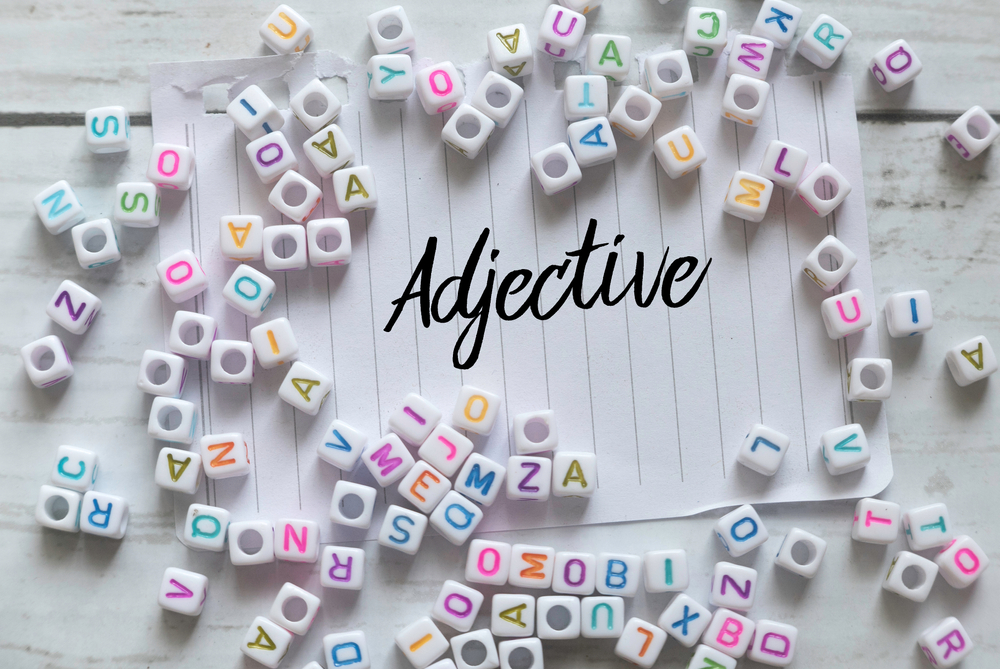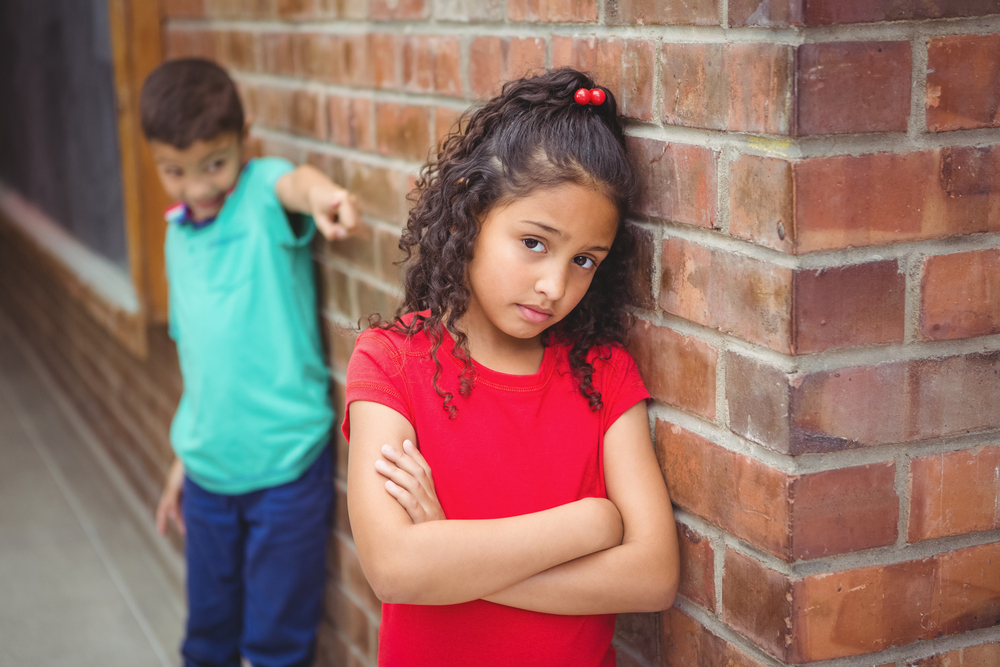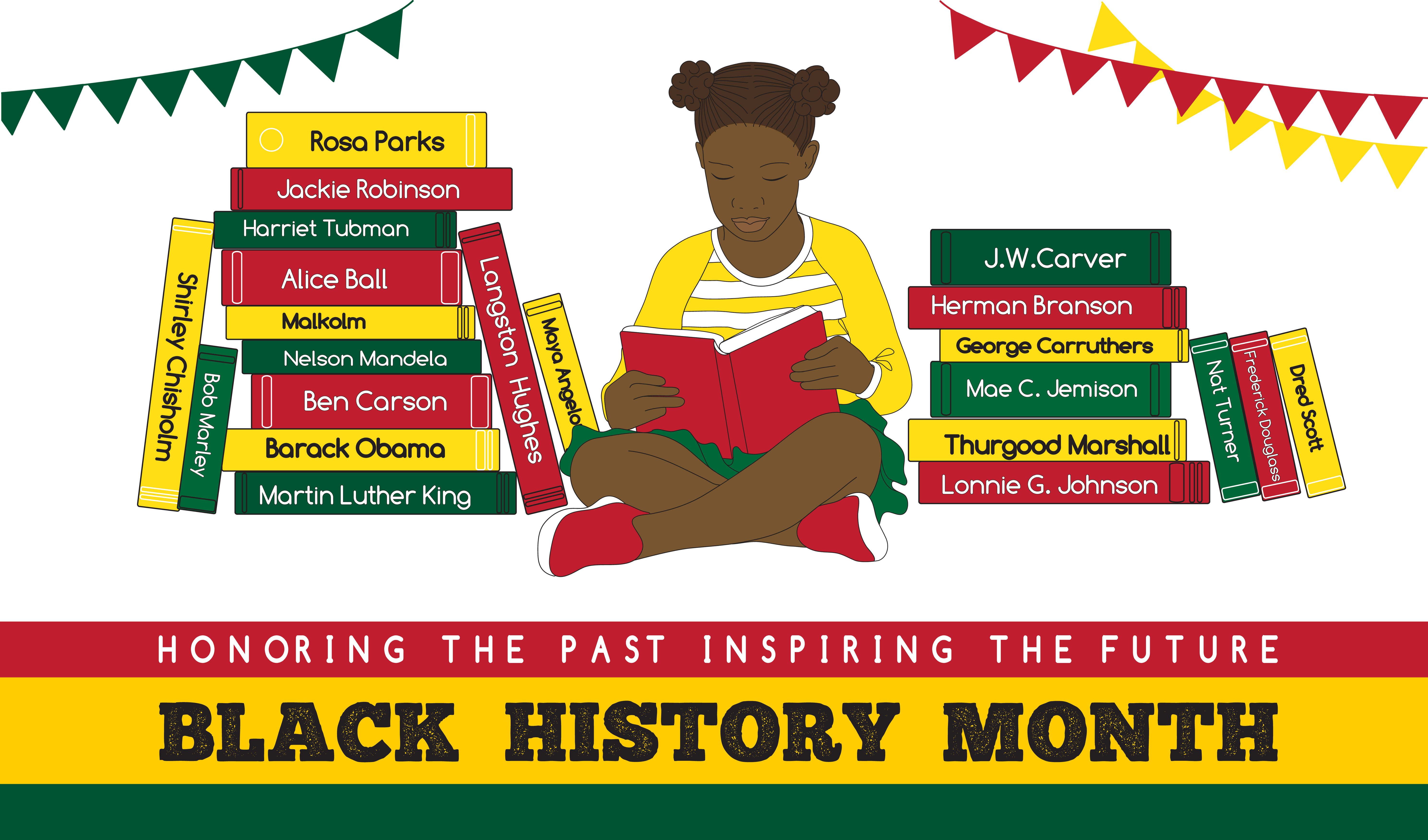Normal Songs and Poems worksheets activities for Ages 4-7
8 filtered results
-
From - To
Discover a delightful collection of songs and poems worksheets designed for children aged 4-7! Our engaging activities promote early literacy skills through fun songs and rhymes that captivate young learners. Each worksheet features vibrant illustrations and interactive tasks that foster creativity while enhancing language and comprehension abilities. Perfect for home or classroom use, these resources spark joy in learning and encourage children to explore rhythm, rhyme, and vocabulary. Whether singing along or crafting their own verses, kids will enjoy meaningful experiences that support their developmental growth. Explore our worksheets today and watch your little ones thrive in their love for music and poetry!
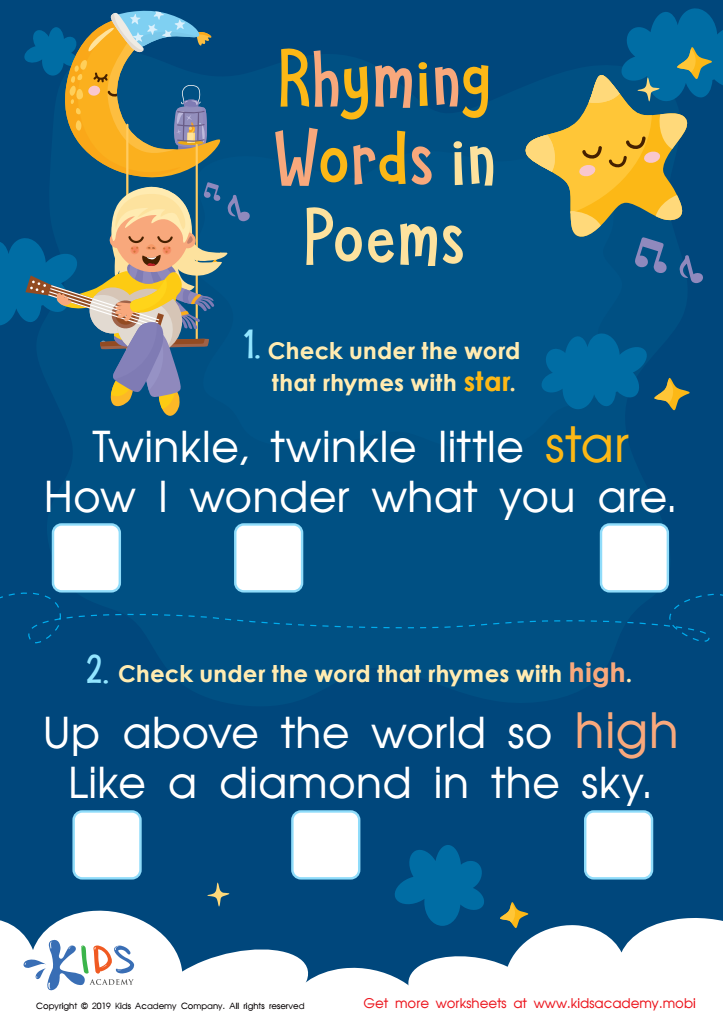

Rhyming Words in Poems Worksheet
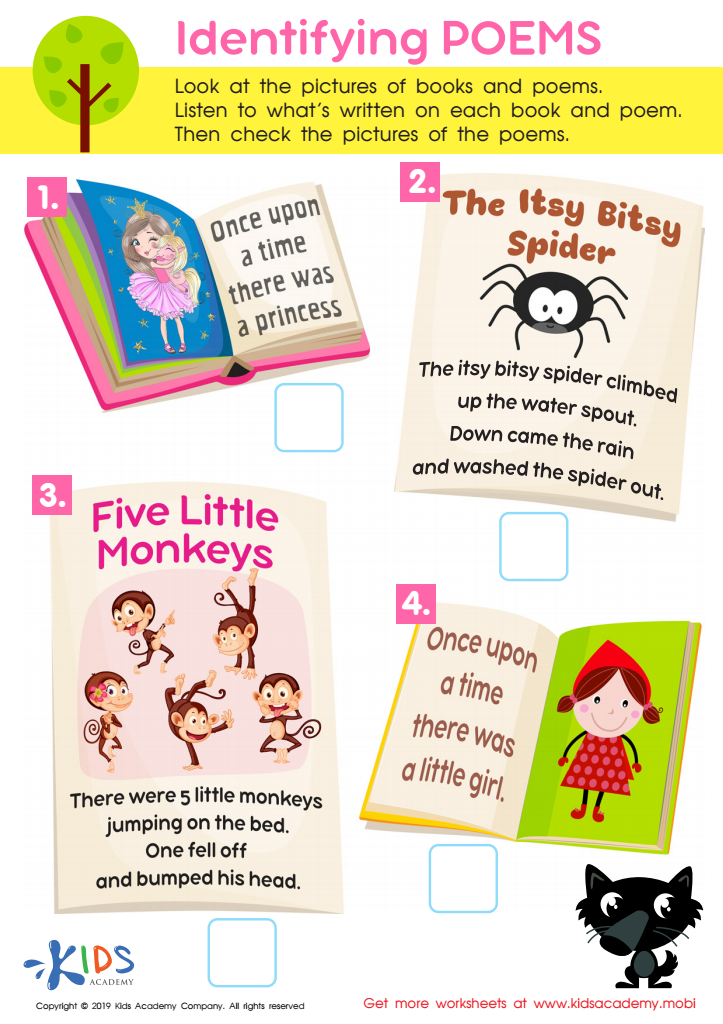

Identifying Poems Worksheet
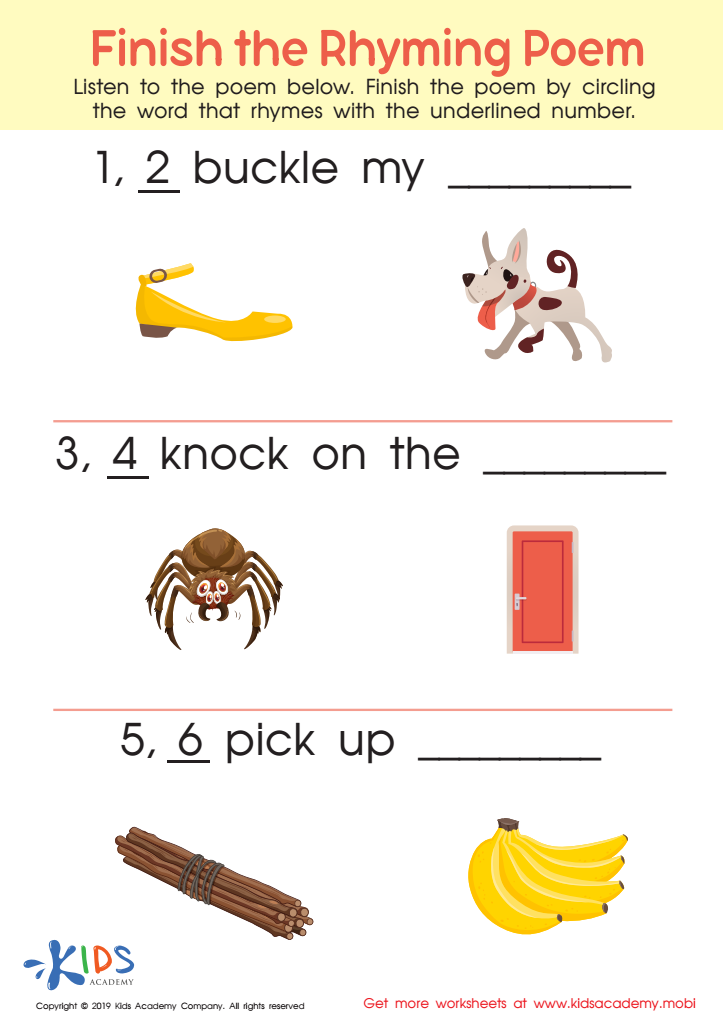

Finish Rhyming Poem Worksheet
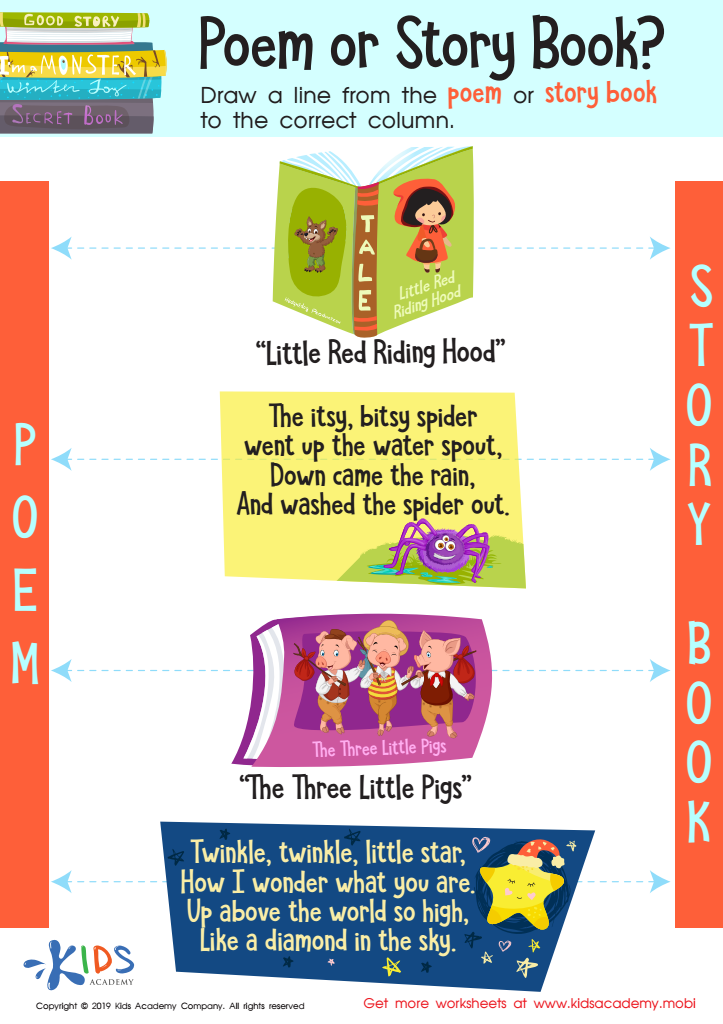

Poem or Story Book? Worksheet


Rhymes in Poems Worksheet
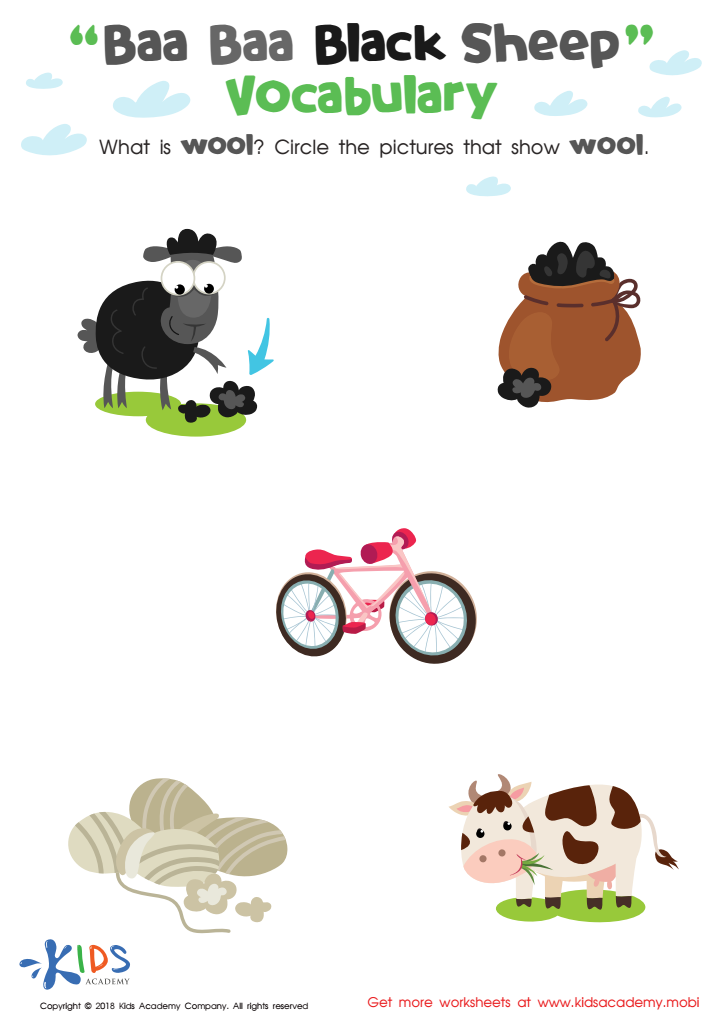

Baa Baa Black Sheep: Vocabulary Worksheet
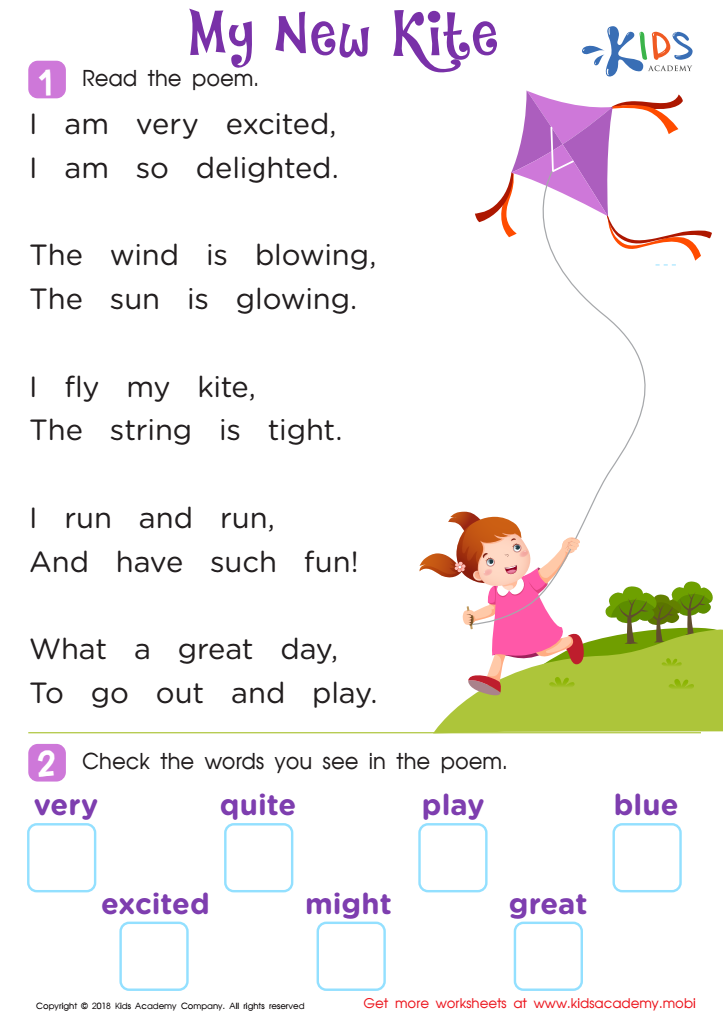

Poem: My New Kite Worksheet
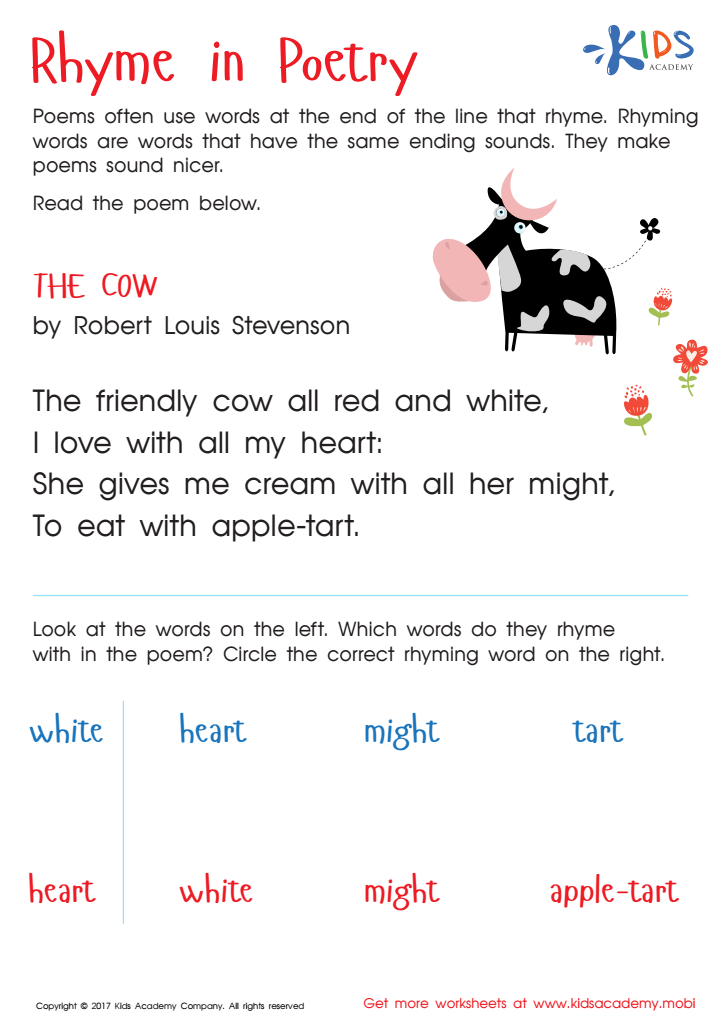

Rhyme In Poetry Worksheet
Parents and teachers should greatly value normal songs and poems activities for children aged 4-7 as they play a pivotal role in early childhood development. These activities promote language skills, where rhythmic patterns and rhyming words enhance vocabulary and phonemic awareness. Engaging with songs and poems allows children to experiment with language, thereby fostering creativity and expression.
Furthermore, songs and poems often embed cultural and social themes, creating opportunities for children to learn about empathy, cooperation, and diversity through relatable content. The repetitive structures and catchy melodies of songs help in memorization and recall, improving cognitive functions essential for literacy.
Additionally, incorporating music and poetry into learning promotes engagement, making education enjoyable and interactive. This can lead to increased motivation and a positive attitude towards learning. Physical activities, often included when singing songs (e.g., actions or dancing), support gross motor skills development.
Moreover, these activities aid emotional development; songs and poems can help children process feelings and develop emotional literacy. Overall, combining fun and educational aspects, normal songs and poems serve as powerful tools in fostering holistic growth and supporting foundational skills that children will build upon in their academic journeys.

 Assign to My Students
Assign to My Students


